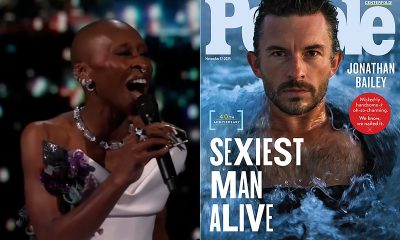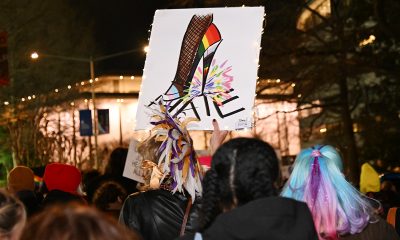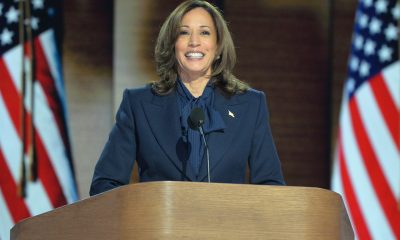Arts & Entertainment
Oscar noms 2020: ‘And the loser is… diversity’
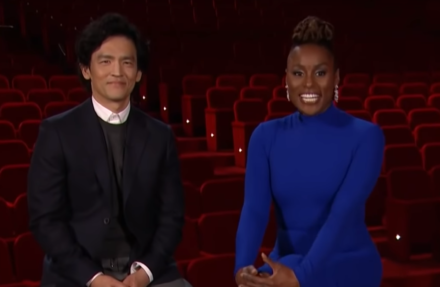
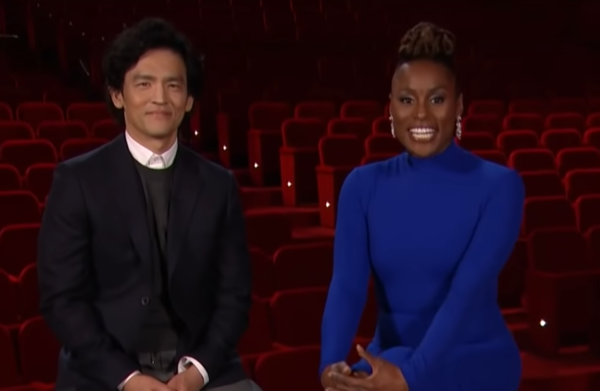
After 2019’s record year of inclusion for LGBTQ and LGBTQ-themed nominees, it looks like Oscars 2020 has taken a huge step backward.
Announced Monday morning from the David Geffen Theatre at the new, yet-to-be-opened Academy Museum in Los Angeles, the list of nominations for the 92nd Academy Awards contained few surprises, aside from a few notable snubs, but is nevertheless noteworthy not only for a shortfall in LGBTQ inclusion, but also for a general lack of overall diversity.
Of the twenty acting nominees, none identify as LGBTQ, but Margot Robbie, nominated for Best Supporting Actress for “Bombshell,” and Antonio Banderas, who made the Best Actor category for his performance in “Pain and Glory,” both portray LGBTQ characters. Only one acting nominee – Cynthia Erivo, nominated for her starring role in the film “Harriet” – is a person of color (Banderas, who is of Spanish descent, is classified by US Census guidelines as “European”). No women were nominated in the Best Director category, and only one of the nine Best Picture nominees was directed by a woman – Greta Gerwig, for “Little Women.” In addition, the majority of the nine nominated films are dominated by male characters, with only “Little Women,” “Marriage Story,” and “Parasite” featuring women among its central cast. In the two screenplay categories, only two women received nods: Gerwig for “Little Women,” and Krysty Wilson-Cairns for co-writing “1917” with director Sam Mendes. “Pain and Glory,” directed by openly-LGBTQ filmmaker Pedro Almodóvar, scored a nomination as Best International Feature.
The lack of diversity in this year’s list of nominations is made even more glaring by several of its omissions:
- Notably left out of the final cut were Latina actress Jennifer Lopez, who was widely expected to score a nod for her performance in “Hustlers.”
- Recent Golden Globe winner Awkwafina, the Phillipina-American rapper-turned-actress who starred in Lulu Wang’s acclaimed mixed-language film, “The Farewell,” was shut out of the Best Actress category, and the movie itself failed to score a slot in the Best International Feature category.
- Former Oscar-winner Lupita Nyong’o failed to garner a nomination for her strong performance in Jordan Peele’s “Us.”
- Bong Joon-ho’s “Parasite,” which earned the rare distinction of being nominated as both Best Picture and Best International Feature, also failed to earn nods for any of its Korean cast, including Song Kang Ho, who was thought to be a likely contender for Best Supporting Actor.
- Actor Jamie Foxx, another favorite for his supporting performance in “Just Mercy,” was snubbed in that category.
- Besides the snub for Gerwig in the director category, strong female contenders Wang (“The Farewell”), Marielle Heller (“A Beautiful Day in the Neighborhood”), Lorene Scafaria (“Hustlers”) and Alma Har’el (“Honey Boy”) were all shut out. To date, only five women have been nominated as Best Director – Kathryn Bigelow (“The Hurt Locker”), Lina Wertmüller (“Seven Beauties”), Jane Campion (“The Piano”), Sofia Coppola (“Lost in Translation”) and Gerwig (“Lady Bird”). Bigelow is the only woman to have won the award in the Academy’s 92 year history.
- Even Beyoncé, considered a shoe-in for a Best Original Song nod with “Spirit” from Disney’s remake of “The Lion King,” was overlooked.
- Also raising eyebrows was the omission of Eddie Murphy in any category for his well-received Netflix film, “My Name is Dolemite,” or former Oscar-winner Ruth Carter for its costume design. In addition, there was a surprising lack of recognition for the Elton John biopic “Rocketman” or its star, Taron Egerton, which failed to earn nominations for Best Picture or Best Actor despite both having been heavy favorites for inclusion in those categories. “Rocketman” did receive a nomination for John and longtime collaborator Bernie Taupin in the Best Original Song category, for “(I’m Gonna) Love Me Again.”
There was an inescapable irony evident in the Academy’s choice of Asian-American actor John Cho and actress of color Issa Rae to announce the nominees at this morning’s event. After the pair read off the names in the Best Director category, Rae quipped, “Congratulations to all those men.”
The film with the most nominations was Todd Phillips’ “Joker,” which received 11 total nods. The first comic book film to lead the race in nominations, Phillips’ movie has been controversial for its portrayal of the iconic “Batman” villain, drawing criticism for glamorizing “incel” culture.
Following “Joker” in total nominations are “The Irishman,” “1917,” and “Once Upon a Time… in Hollywood,” with eight each. “Jojo Rabbit,” “Little Women,” “Marriage Story,” and “Parasite” each received six. Each of the leading films are contenders for the Best Picture category.
The nominations are determined by Academy members who vote in their own categories – with actors nominating actors, directors nominating directors, etc. – while the final winners in all categories are chosen by vote from the entire Academy membership. The Oscar presentation will take place on February 9, 2020, to be televised by ABC. For the second year in a row, the ceremony will not have a designated host, but will split hosting duties among individual presenters.
For a complete list of nominations, click here.
Arts & Entertainment
2026 Most Eligible LGBTQ Singles nominations
We are looking for the most eligible LGBTQ singles in the Washington, D.C. region.

Are you or a friend looking to find a little love in 2026? We are looking for the most eligible LGBTQ singles in the Washington, D.C. region. Nominate you or your friends until January 23rd using the form below or by clicking HERE.
Our most eligible singles will be announced online in February. View our 2025 singles HERE.
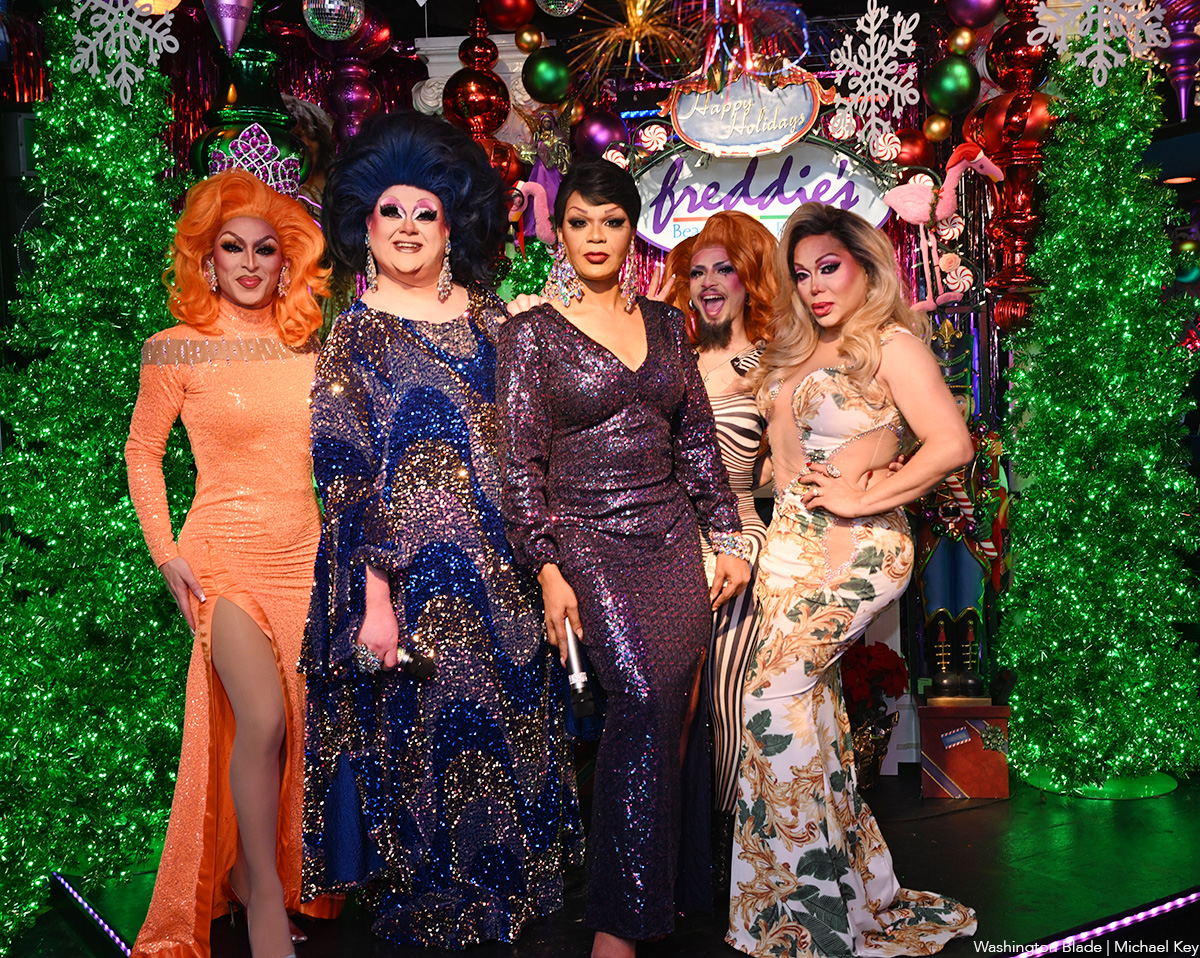
The Freddie’s Follies drag show was held at Freddie’s Beach Bar in Arlington, Va. on Saturday, Jan. 3. Performers included Monet Dupree, Michelle Livigne, Shirley Naytch, Gigi Paris Couture and Shenandoah.
(Washington Blade photos by Michael Key)

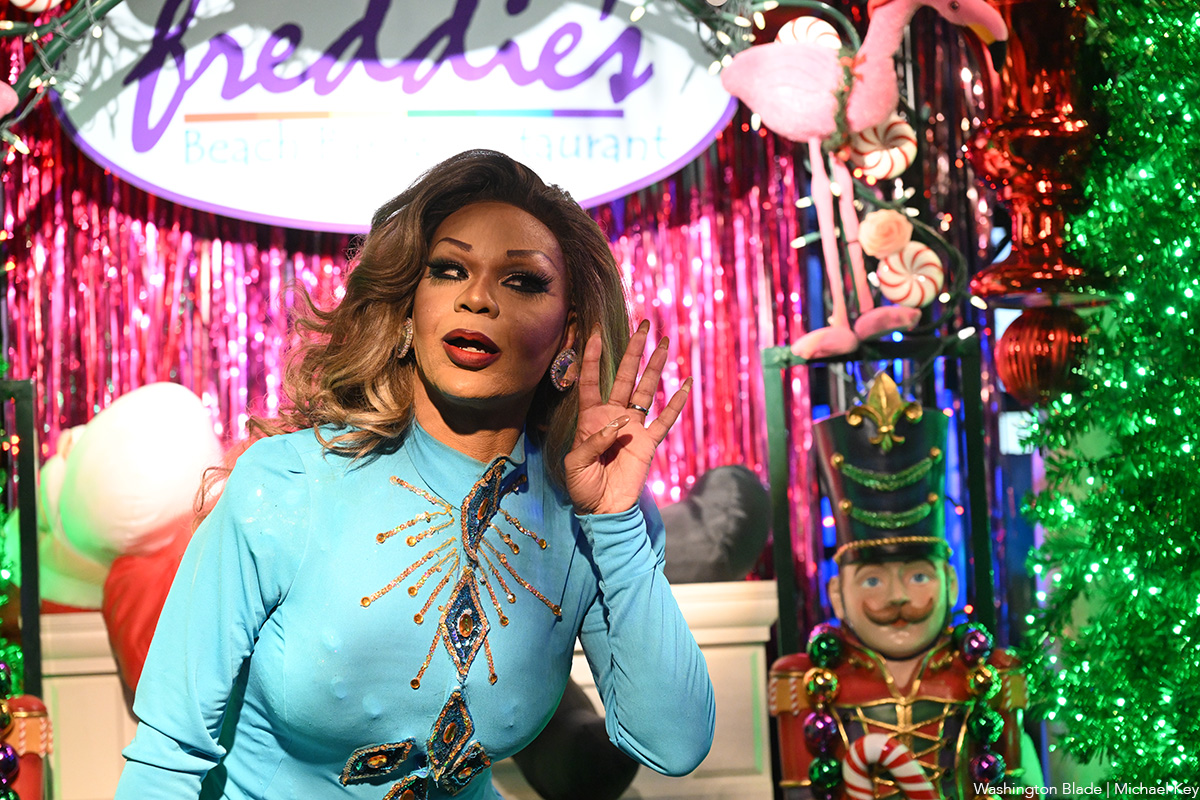





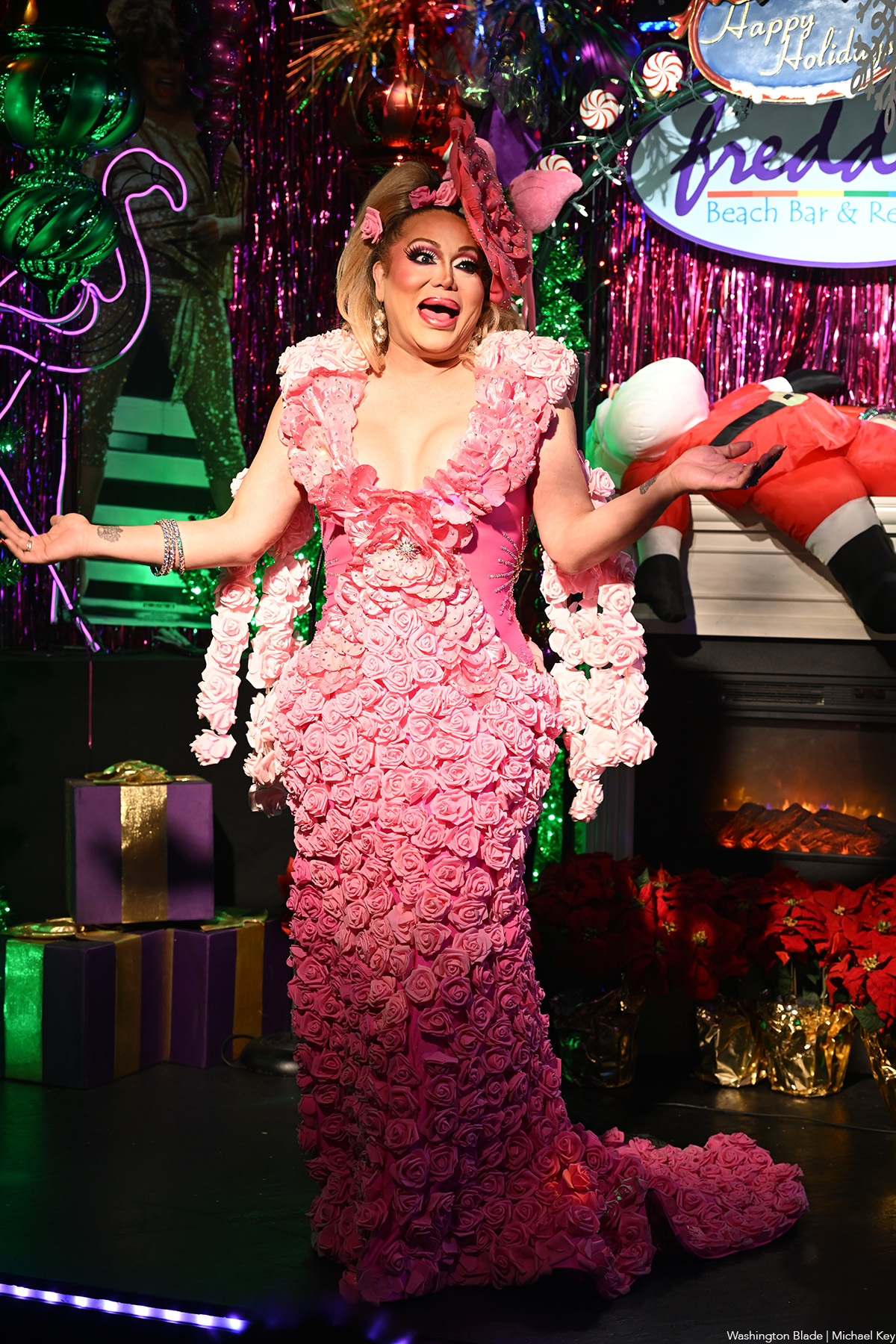
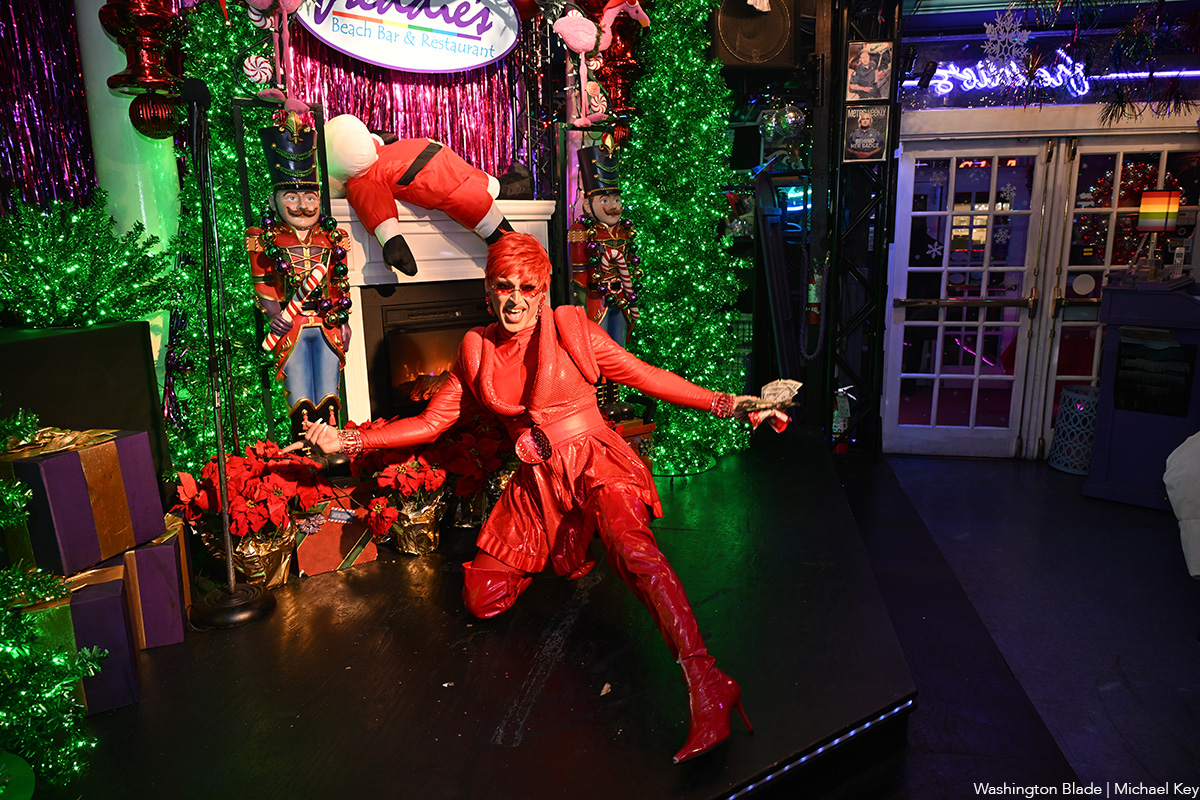
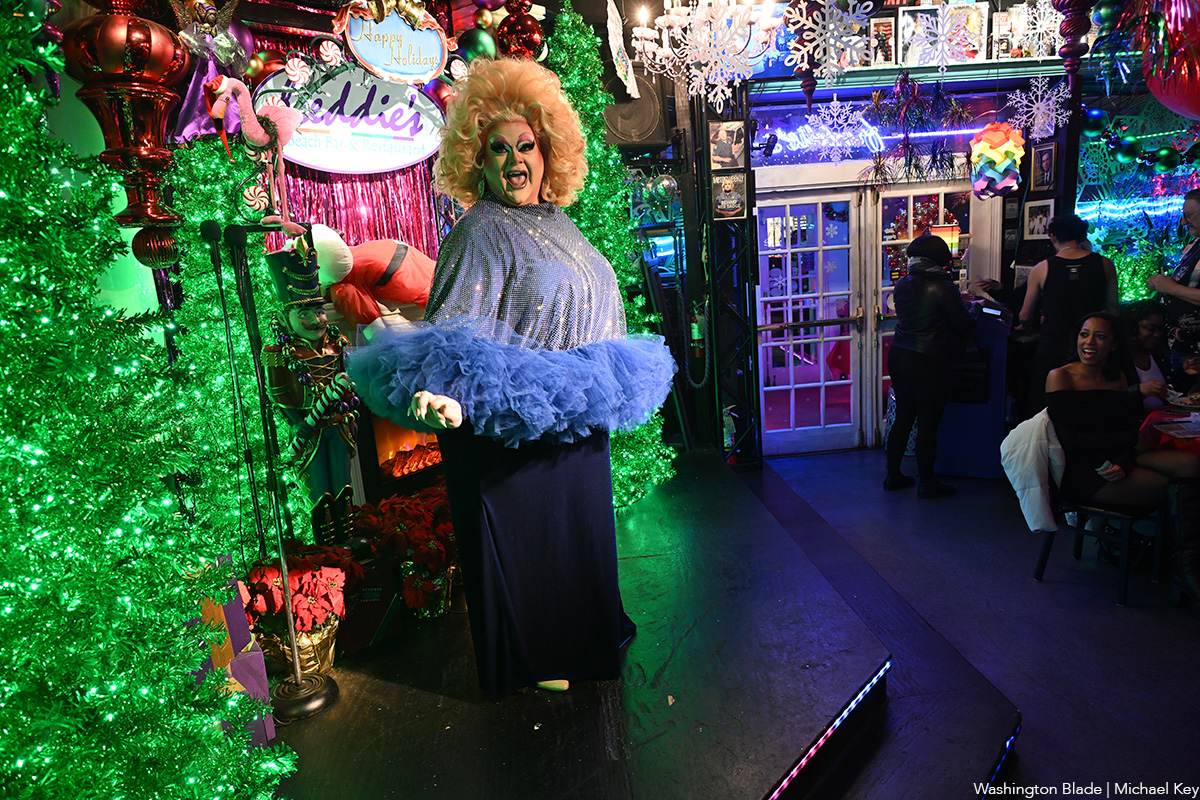
a&e features
Queer highlights of the 2026 Critics Choice Awards: Aunt Gladys, that ‘Heated Rivalry’ shoutout and more
Amy Madigan’s win in the supporting actress category puts her in serious contention to win the Oscar for ‘Weapons’
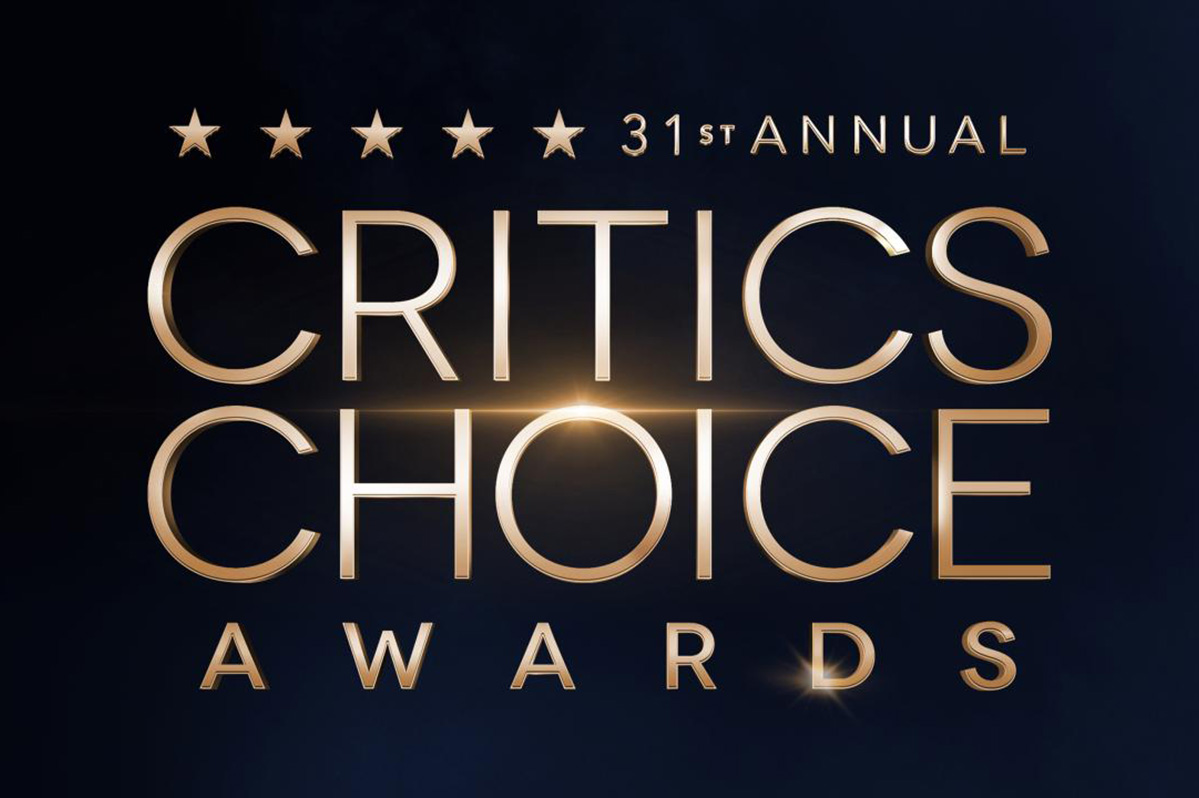
From Chelsea Handler shouting out Heated Rivalry in her opening monologue to Amy Madigan proving that horror performances can (and should) be taken seriously, the Critics Choice Awards provided plenty of iconic moments for queer movie fans to celebrate on the long road to Oscar night.
Handler kicked off the ceremony by recapping the biggest moments in pop culture last year, from Wicked: For Good to Sinners. She also made room to joke about the surprise hit TV sensation on everyone’s minds: “Shoutout to Heated Rivalry. Everyone loves it! Gay men love it, women love it, straight men who say they aren’t gay but work out at Equinox love it!”
The back-to-back wins for Jacob Elordi in Frankenstein and Amy Madigan in Weapons are notable, given the horror bias that awards voters typically have. Aunt Gladys instantly became a pop culture phenomenon within the LGBTQ+ community when Zach Cregger’s hit horror comedy released in August, but the thought that Madigan could be a serious awards contender for such a fun, out-there performance seemed improbable to most months ago. Now, considering the sheer amount of critics’ attention she’s received over the past month, there’s no denying she’s in the running for the Oscar.
“I really wasn’t expecting all of this because I thought people would like the movie, and I thought people would dig Gladys, but you love Gladys! I mean, it’s crazy,” Madigan said during her acceptance speech. “I get [sent] makeup tutorials and paintings. I even got one weird thing about how she’s a sex icon also, which I didn’t go too deep into that one.”
Over on the TV side, Rhea Seehorn won in the incredibly competitive best actress in a drama series category for her acclaimed performance as Carol in Pluribus, beating out the likes of Emmy winner Britt Lower for Severance, Carrie Coon for The White Lotus, and Bella Ramsey for The Last of Us. Pluribus, which was created by Breaking Bad’s showrunner Vince Gilligan, has been celebrated by audiences for its rich exploration of queer trauma and conversion therapy.
Jean Smart was Hack’s only win of the night, as Hannah Einbinder couldn’t repeat her Emmy victory in the supporting actress in a comedy series category against Janelle James, who nabbed a trophy for Abbott Elementary. Hacks lost the best comedy series award to The Studio, as it did at the Emmys in September. And in the limited series category, Erin Doherty repeated her Emmy success in supporting actress, joining in yet another Adolescence awards sweep.
As Oscar fans speculate on what these Critics Choice wins mean for future ceremonies, we have next week’s Golden Globes ceremony to look forward to on Jan. 11.

